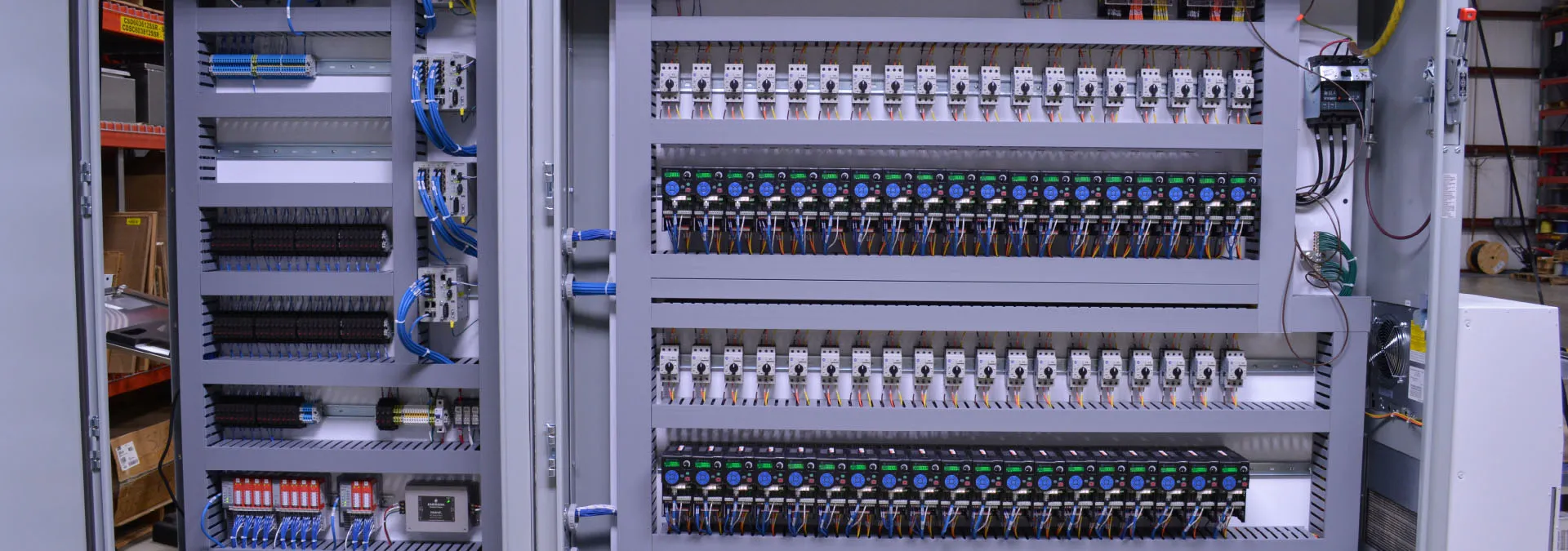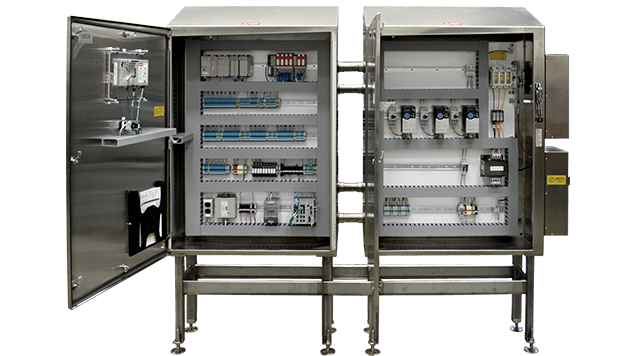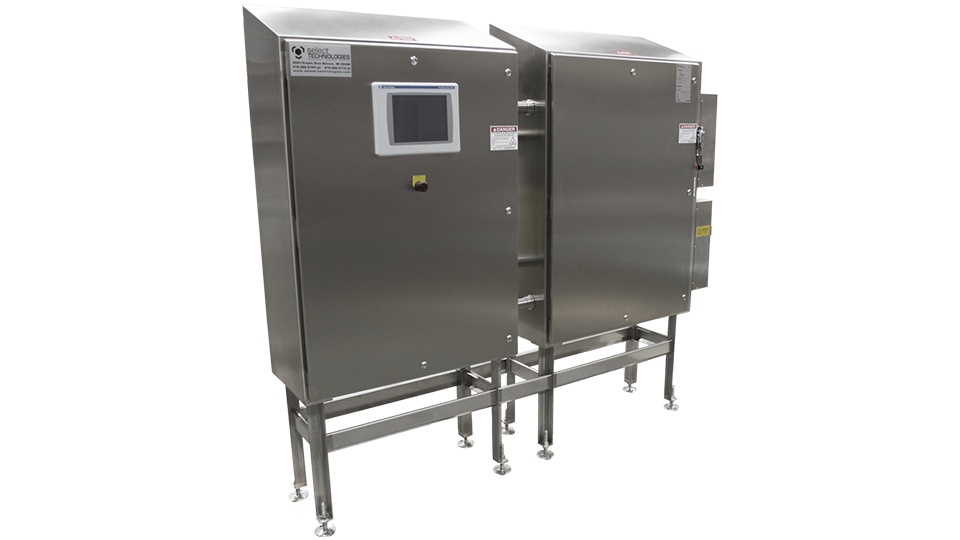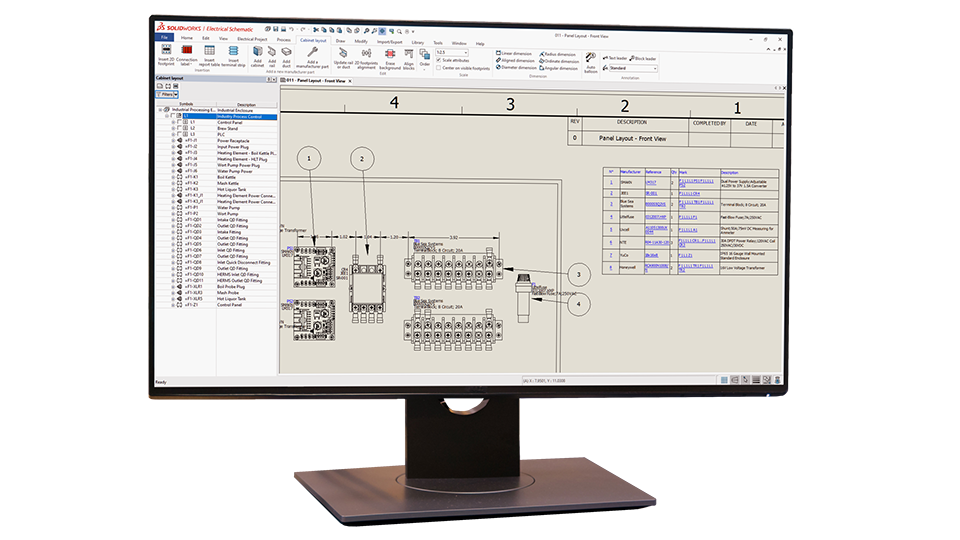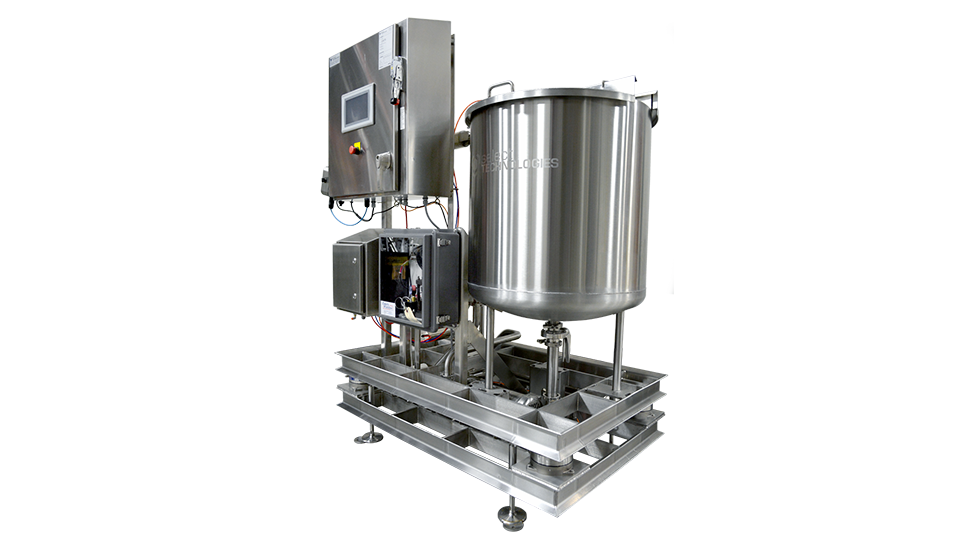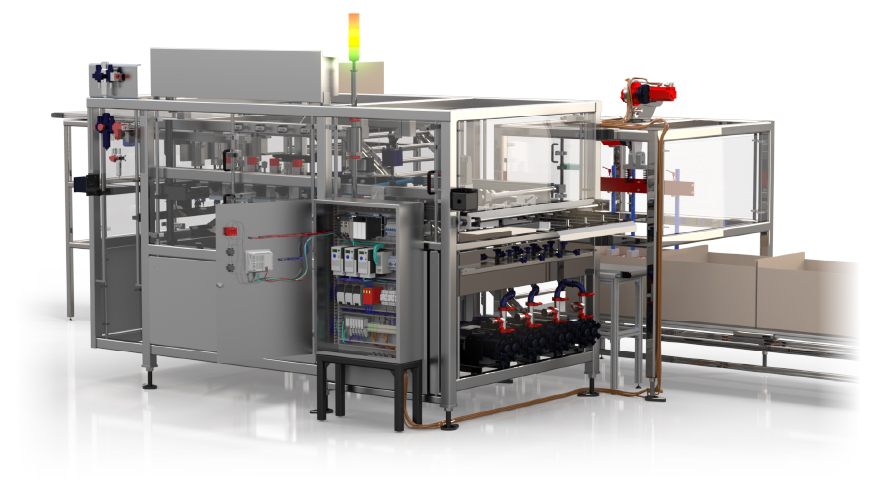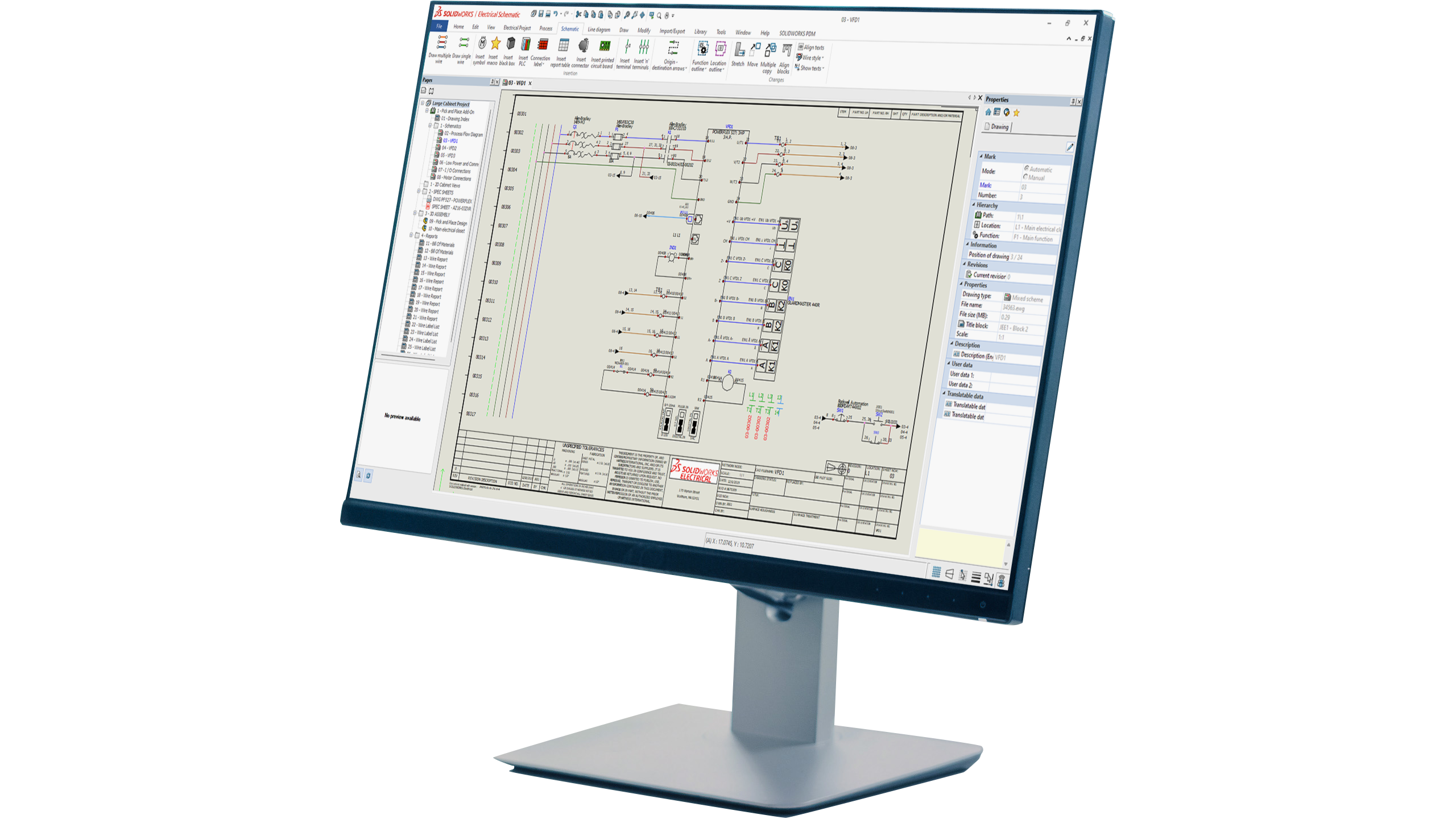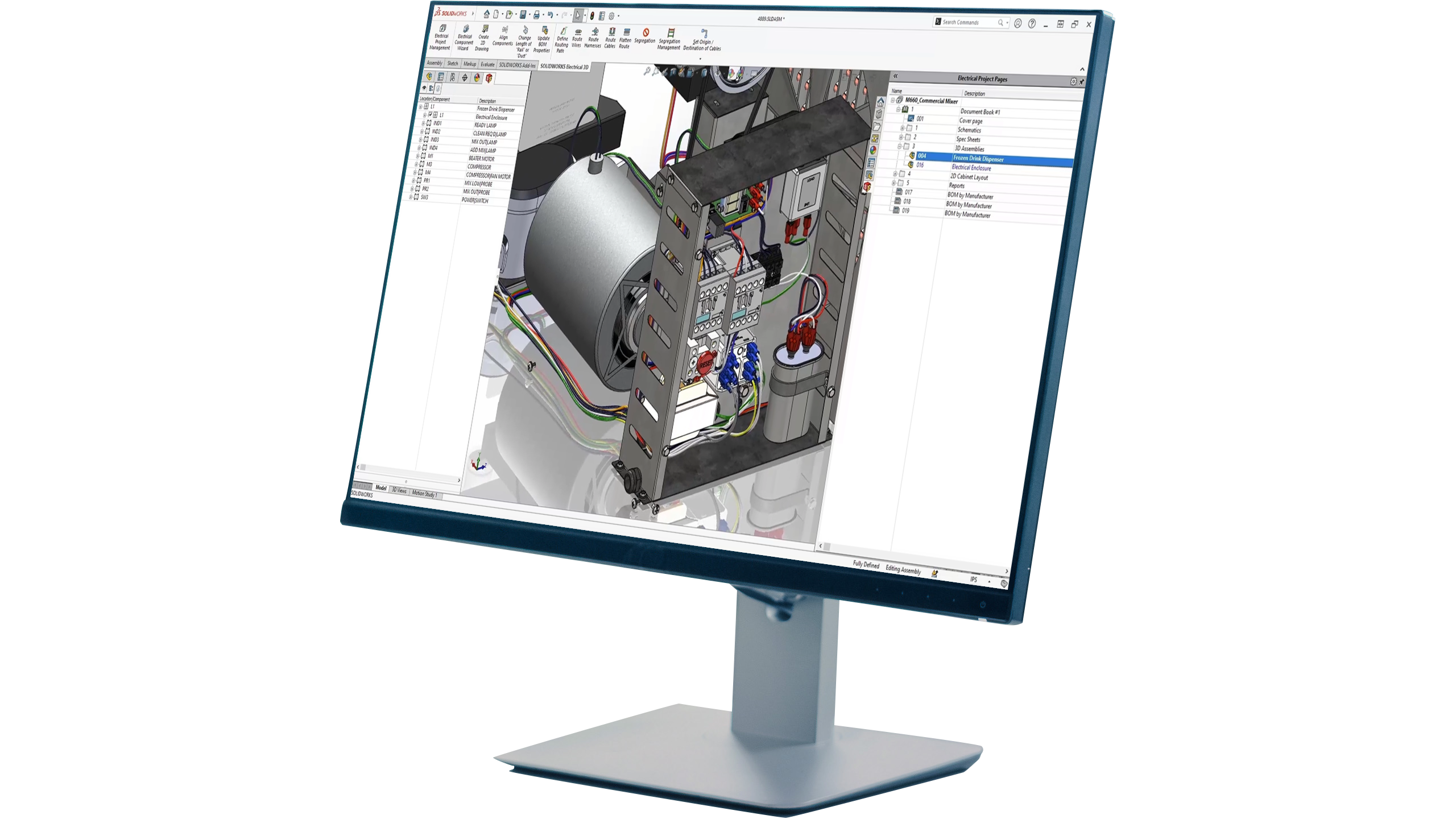What is Industrial Control Panel Design?
What is an Industrial Control Panel?
An industrial control panel, sometimes referred to as a cabinet or chassis, is an assembly of hardware—both structural and electrical—that allows you to control and monitor industrial systems. Its function is largely dependent upon its design which is why it’s crucial to involve all teams across electrical, mechanical, and manufacturing in conversations early on into the design process.
Industrial control panels (ICPs) contain a range of hardware—like switches, fuses, relays, and PLCs (programmable logic controllers)—that connect the internal electrical components to the electrical source, which enables these systems to work. Outside of the internal hardware, control panels also include an enclosure or cabinet. This is the structure that surrounds the internal components to provide physical and environmental protection to the control system. Often, the actual electrical power source will be outside the control panel’s enclosure, and wiring will be used to bring power into the control panel, which can then be modulated to meet the panel’s unique power requirements.

